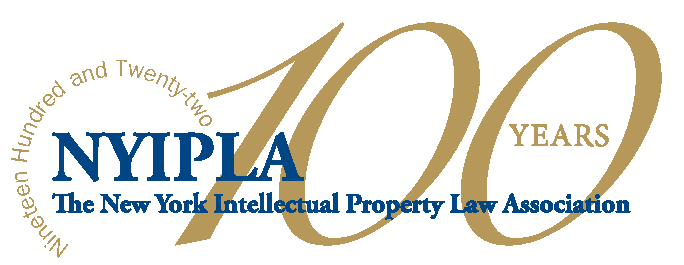SCOTUS Review Redefining Administrative Second Looks At Patents; Predictability and the Standard of Review in IP Cases
- 5/15/2018 -
Please arrive early for registration
- The Princeton Club
15 West 43rd Street
New York, New York 10036
NYIPLA Annual Meeting
"SCOTUS Review Redefining Administrative Second Looks At Patents" and "Predictability and the Standard of Review in IP Cases" (88 Pages)
Harper & Row, Publishers, Inc. and the Reader's Digest Association, Inc. v. Nation Enterprises and the Nation Associates, Inc. (32 Pages)
Oracle America, Inc. v. Google LLC (56 Pages)
Tuesday, May 15, 2018
Princeton Club of New York
1:45 p.m. - 2:00 p.m.
Registration and Refreshments
2:00 p.m. - 3:15 p.m.
CLE Program
hosted by Amicus Brief, Patent Litigation, Trademark and Copyright committees
Moderator: Hon. Faith Hochberg, United States District Court for the District of New Jersey (Ret.)
SCOTUS Review Redefining Administrative Second Looks At Patents
Speakers:
Charles Macedo, Amster Rothstein & Ebenstein LLP
Robert Rando, The Rando Law Firm PC
- The Majority and Dissenting Opinions in each of these Decisions
- The Questions Answered by the Court
- The Questions Left Unanswered and New Questions Raised by these Decisions
Predictability and the Standard of Review in IP Cases
Speakers:
Julie Albert, Baker Botts LLP
Ronald Coleman, Mandelbaum Salsburg PC
Most agree that predictability in the IP legal system is important. How does the standard of appellate review help – or not help – with predictability? Is there a difference in predictability among patent, trademark and copyright cases, given that all patent cases are appealed to the Federal Circuit whereas IP cases with no patent component go to the regional circuit Courts of Appeal? Many IP issues (like many issues litigated at trial) are mixed questions of law and fact. What happens on review of these mixed questions of law and fact? Should the answer differ when a jury is involved? The Supreme Court recently held in a bankruptcy case that “mixed questions are not all alike,” and that the standard of review for a mixed question depends on whether answering it entails primarily legal or factual work. US Bank v. Village at Lakeridge, LLC, No. 15-1509, ___ U.S. ___ (Mar. 5, 2018) (applying deferential clear error standard of review for determination of “non-statutory insider” status, which depends on whether the deal with the debtor was at arm’s length; “as factual sounding as any mixed question gets”).
Cases to consider include the following:
- Oracle America, Inc. v. Google LLC, Nos. 2017-1118, 2017-1202 (Fed. Cir. Mar. 27, 2018) (whether the court applied the correct legal standard to the fair use inquiry is a question reviewed de novo, whether the findings relating to any relevant historical facts were correct are questions reviewed with deference, and whether the use at issue is ultimately a fair one is reviewed de novo)
- Hana Financial Inc. v. Hana Bank, 135 S.Ct. 907 (2015) (a jury should decide the mixed question of whether an original trademark and a revised trademark can be considered “legal equivalents” for purposes of determining priority (meaning that the marks “create the same, continuing commercial impression”))
- Various cases on trademark likelihood of confusion: the issue is a question of fact subject to a clearly erroneous standard of review in most circuits, but a mixed or ultimate question of law with the underlying factors treated as questions of fact in the Second, Sixth and Federal Circuits
- Various patent cases including:
- Teva Pharmaceuticals USA, Inc. v. Sandoz, Inc., 135 S.Ct. 831 (2015) (patent claim construction is a legal issue, but in claim construction rulings with “evidentiary underpinnings,” the Court of Appeals should review the district court's fact-finding applying a clear error, not a de novo, standard of review)
- Graham v. John Deere Co., 383 U.S. 1 (1966) (obviousness in patent law is a legal determination based on factual inquiries) and subsequent cases addressing the standard of review
- Berkheimer v. HP Inc., No. 2017-1437 (Fed. Cir. Feb. 8, 2018) (whether a claim recites patent eligible subject matter is a question of law which may contain disputes over underlying facts) and other decisions discussing the standard of review in Section 101 cases
3:30 p.m. - 4:30 p.m.
Refreshments will be served
*Committee Meetings
4:30 p.m. - 5:30 p.m.
*Annual Meeting of Members
5:30 p.m. - 6:00 p.m.
Board Meeting
5:30 p.m. - 8:30 p.m.
Cocktail Reception
followed by
Awards Dinner
Keynote Speaker
Honorable Robert A. Katzmann
Chief Judge of the United States Court of Appeals for the Second Circuit
Hon. William C. Conner Writing Competition
Inventor of the Year
Dr. Michael Kass
Recognized for his contributions to the field of computer graphics
Hon. Giles S. Rich Diversity Scholarship
St. John's School of Law
*Free Registration - Committee Meetings and Annual Meeting of Members
